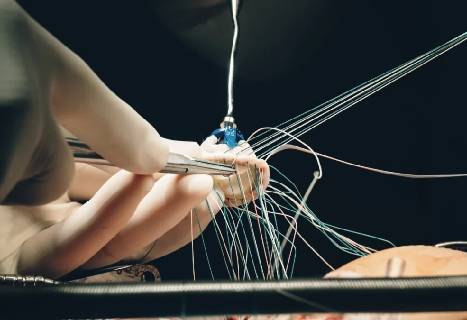
As a leading specialist in mitral valve replacement surgery in Bangalore, Dr. Sudarshan performs complex mitral valve procedures through small keyhole incisions, offering patients faster recovery, minimal scarring, and excellent long-term outcomes.
The mitral valve controls blood flow between the left atrium and left ventricle, and when diseased, requires expert surgical intervention. Dr. Sudarshan's advanced MICS mitral valve replacement technique provides the most sophisticated treatment available in Bangalore.

The mitral valve may require replacement when repair is not possible or when the valve is severely damaged. Mitral valve replacement surgery becomes necessary in cases of:
If you experience these symptoms, you may need mitral valve replacement:
MICS mitral valve replacement performed by Dr. Sudarshan offers significant advantages over traditional open-heart surgery:
| Aspect | Traditional Surgery | MICS Approach |
|---|---|---|
Incision Size |
25-30 cm breastbone cut |
4-6 cm right chest incision |
Bone Cutting |
Breastbone split required |
No bone cutting needed |
Recovery Time |
8-12 weeks |
3-4 weeks |
Hospital Stay |
7-10 days |
3-5 days |
Pain Level |
Significant |
Minimal |
Scarring |
Large visible scar |
Small hidden scar |
Blood Transfusion |
Often required |
Rarely needed |
Return to Work |
10-12 weeks |
4-6 weeks |
Dr. Sudarshan utilises the da Vinci Xi robotic system for unparalleled precision:
Dr. Sudarshan will help you select the optimal valve type based on your age, lifestyle, and medical condition:
Made from treated porcine or bovine tissue
Best for: Patients >65 years, those who cannot take blood thinners, women planning pregnancy
Durable artificial valves made from pyrolytic carbon
Best for: Patients < 65 years, those wanting to avoid re-operation
Mitral Valve Replacement surgery cost in Bangalore varies based on multiple factors:
Cost Range Overview
The average cost of mitral valve replacement in Bangalore starts from ₹400,000 to ₹700,000




42-year-old female with rheumatic mitral stenosis
50-year-old female with severe mitral regurgitation
Young patient needing valve replacement, concerned about scarring and recovery time
78-year-old with calcific mitral stenosis
Don't let mitral valve disease limit your quality of life. Dr. Sudarshan GT, Bangalore's leading mitral valve specialist, offers the most advanced minimally invasive treatment options available.
For acute mitral valve emergencies, Dr. Sudarshan provides 24/7 emergency surgery services at Fortis Hospital.